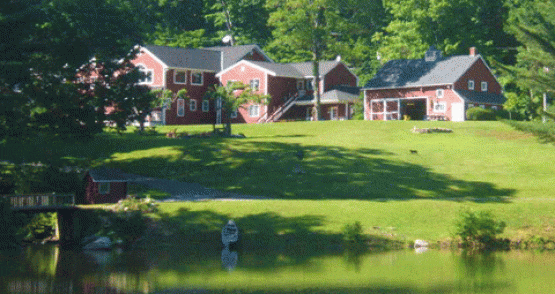Treatment at Trinity Glen is aimed at men who have struggled to maintain sobriety despite previous attempts at rehabilitation, detoxification, or other treatment programs. Situated in the serene Berkshire Mountains in Sharon, Connecticut, this facility offers clients a secluded and structured environment for intensive addiction treatment. The therapeutic community at Trinity Glen is specifically designed to promote each client’s sense of responsibility and provide a safe space to practice new skills and tools for sober living.
ABOUT MCCA – TRINITY GLEN MEN’S PROGRAM
Trinity Glen, located in Sharon, Conn., is a residential addiction treatment facility designed exclusively for men. It is operated by Midwestern Connecticut Council of Alcoholism, Inc. (MCCA), a nonprofit organization dedicated to substance abuse treatment since its establishment in 1972. MCCA offers a range of treatment programs, including residential, outpatient, intensive outpatient, and transitional housing. Medically monitored detoxification services are available nearby in Danbury, Conn.
There is also a residential facility for women called Trinity Glen, located in Kent, Conn., approximately 30 minutes away from the men’s program.
TREATMENT AND ASSESSMENT
Before entering the structured, sober community-living experience at Trinity Glen, residents undergo an initial assessment to inform their personalized treatment plan. In addition to weekly community meetings, recreation therapy, and optional Alcoholics Anonymous (AA) meetings in the evenings, clients participate in individual and group counseling. The program also includes continuing care planning.
Trinity Glen also offers a work therapy component, which involves 20 to 30 hours per week of tasks designed to develop work skills, responsibility, and self-esteem. This work therapy routine contributes to the facility’s primary goals of increasing clients’ sense of responsibility and cultivating a sense of self-worth within the community.
STAFF CREDENTIALS
The staff at Trinity Glen includes a facility director, a medical needs facilitator, a work therapy supervisor, state-licensed and certified counselors, and monitors.
ACCOMMODATIONS & AMENITIES
The residential accommodations at Trinity Glen for the men’s program are reminiscent of barns and cottages. Situated on 23 wooded acres in the Berkshire Mountains, the facility offers 50 semi-private rooms. Clients also have access to spacious treatment and meeting areas.
WHAT ALUMNI SAY
At the time of this writing, Best-rehabs.com has received two positive reviews from alumni, who both gave four and five-star ratings to various aspects of the program, including treatment effectiveness, affordability, and family participation. The lowest rating was given to the facility’s faith-based programming, which received three stars from alumnus James. James wrote, “It gives you a chance to find yourself. I loved everything about it.”
On MCCA’s Facebook page, which represents the entire network, there are 18 reviews to date, with an average rating of 3.8 out of five stars. Most reviewers gave five-star ratings and praised the professionalism of the staff. However, there were also negative reviews that criticized the facility for poor communication from staff and difficulties in the admission process, with one alumnus accusing the facility of discrimination.
WHAT FRIENDS & FAMILY SAY
The only loved one surveyed by Best-rehabs.com gave the facility five stars for meals and nutrition, two stars for holistic treatment offerings and staff experience and training, and four stars for cleanliness and affordability. However, the respondent noted that their friend or family member did not benefit from treatment, citing a lack of structure and too much freedom given to the clients.
WHAT STAFF SAY
On Indeed, five current and former employees rated the MCCA network with an average of 1.6 out of five stars. Although one reviewer described the staff as friendly, the others criticized the network for inadequate employee training and subpar accommodations for clients.
FINANCING
MCCA accepts private insurance, state insurance, and Medicaid. Clients may also choose to pay out-of-pocket using cash, checks, or major credit cards. The facility also accepts Access to Recovery (ATR) vouchers, according to Healthgrove and Citehealth.
References:[1] [2]
